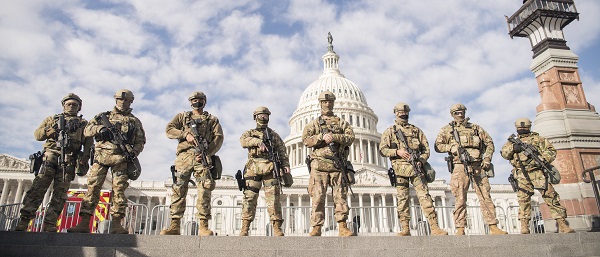Alberta
Class Action Lawsuit Against the Province of Alberta – Rath on Behalf of Ingram and Scott

|
|
To preface, the amount of knowledge I have in our legal system would fit into a thimble with a lot of room leftover to hold, well…a lot of other stuff that would fit into a thimble.
But I’m going to do my best to cover the certification hearing for the Class Action Lawsuit against the Province of Alberta by Rath and Company, on behalf of Rebecca Ingram and Chris Scott.
For the purposes of keeping this to a reasonable length, I’ll be hitting more along the lines of the high-notes instead of going through and summarizing the thousands of pages submitted by Rath and Co + the Province and keep to what I found most interesting throughout the 2 days I’d spent down at the courthouse viewing. The hearing was to allow both sides to submit their briefs and so that Justice Feasby could make sure that he understood the base of their cases, qualify information and take it away for judgement.
Even if Rath is successful in having this Class Action Certified, there is still a long road ahead to succeed in getting damages covered and a trial to be had and because of the specifics of the mishandling by the Province throughout the pandemic, if they are successful here, it doesn’t mean that every other province can proceed ahead, under the same criteria.
What does this mean?
The previous case against the Province with Rebecca Ingram, showed that the non-pharmaceutical interventions – lockdowns, businesses closed, capacity limits…were ruled Ultra Vires (beyond legal power or authority), by Justice Romaine…in that, these weren’t actually made by the Chief Medical Officer of Health (CMOH), Deena Hinshaw, they were made by Cabinet…and Cabinet hid behind Hinshaw issuing these orders under the Public Health Act instead of working with the Emergency Management Act.
Because of “Cabinet Privilege”, information was revealed by the CMOH and Justice Romaine – in camera (private) – we can only speculate the reasons for this.
One could argue that because the province and Alberta Health Services got 100% of everything wrong during the pandemic, that this was just another link in the very weak chain…
However, it’s also possible that the Cabinet Members making these decisions wanted to hide and remain hidden for political purposes, as in…those making the decisions to close down businesses didn’t want to have to face voters in a subsequent election, knowing the damages that they’d caused in the business community.
Seeing how many small businesses were closed down, to never reopen…savings spent, jobs and homes lost, lives impacted by these decisions, arguably touching every single person in the province, would make for some bad press and a constituencies filled with voters showing up with a chip on their shoulder towards those who made these decisions and still chose to run for Legislature again.
In addition to this…If the orders were run through the Emergency Management Act, all of the businesses impacted would be entitled to compensation, whereas under the Public Healthcare Act…they weren’t.
It’s based on these specificities that Rath argued that the Province acted in ‘Bad Faith’ as the basis for their case, in that, the province made decisions that they didn’t have the authority to make and absolutely had to have known would harm businesses and made them through the PHA which restricted these businesses from being compensated.
Rath had completed his presentation of their brief before lunch on the first day, where Feasby had a couple of points that he wanted clarified…which was completed after lunch on this same day.
And then…the Province took the podium.
As I’d previously stated, this was a bloodbath for the afternoon of Day 1 and continued on throughout their presentation on Day 2, where by Feasby openly mocked each member of the Province – Dube, Chu and Flanders.
Rightfully so, if I might add, because a lot of their logic was illogical and even to those of us in the gallery, laughable both with and without comments from the Justice.
On day 2, because of the chorus of opened mouthed guffaw from the gallery, we’d all received a warning try and keep it down.
Arguments made by the province which were stunning and laughable:
- The public does have a right to accountability and that these would be ‘Ballot Box Issues’, of course recognizing that Cabinet was the ones who made these decisions but because they were hidden behind Cabinet Confidence, we can’t actually have accountability, which of course Dube knew;
- The Plaintiffs (Rath on behalf of Ingram and Scott) needed to name the members responsible – which were, again, hidden by cabinet confidence;
- There is no fiduciary accountability afforded under the Public Health Act, where the interventions were deemed Ultra Vires;
- The Province couldn’t have known that businesses would be harmed by the orders – where Feasby stated that it would be impossible for them to Not Know;
- Businesses are not members of a vulnerable group – though were identified by the CMOH orders;
- There is no Nexus or Proximity between the Acts (CMOH orders) and Injury – where Feasby stated causation where orders made, closed businesses, that caused injury was the connection;
- A breach of the Bill of Rights does not necessitate compensation, where the use of the Public Health Act was engaged illegally by cabinet;
- No common issues exist – where all businesses that were impacted were impacted financially;
- Not all businesses that were impacted abided by the CMOH orders, though they may be able to still show financial losses during these times;
- Abuse of Power, by Cabinet in their orders, wasn’t actually an Abuse of Power because it was done in good faith;
- Even without the orders, during the pandemic, people still wanted to just stay home and avoid going out – they actually said this;
- Although the Pandemic Orders were deemed Ultra Vires, they were valid at the time. This was particularly stupid as an argument made repeatedly by Chu and lost the province some large points with Feasby. Her logic is that the orders WERE Valid up until the time they were deemed Ultra Vires…where Feasby stated, a definitive ‘Nope’. Once they were deemed Ultra Vires, this extended back to when they were put in place.
- The Plaintiffs should be suing Alberta Health Services, arguing that AHS is not the province, again another stupid point where the judge stated, “You can’t stand here with a straight face and make this as an argument”.
- Expropriation of businesses wasn’t actually expropriation (businesses shut down or limited in capacity were essentially expropriated – partially or fully taken away from leaseholders and property owners), because there were no transfer of titles and they weren’t kept by the province on a forever hold. When I’d asked Eva Chipiuk about this, she stated that the province had effectively made this up as terms of expropriation, this isn’t what it actually means…and this was clarified to the Justice by Jeff on reply following the Province stating their case on Day 2.
- Classes of businesses could not be identified for a Class Action Lawsuit – where, orders put out by the CMOH on behalf of Cabinet, specifically identified the types of businesses that would need to close or limit capacity. Jeff made a point on this where in the early stages, Casinos and Stripper Bars were allowed to be left open while Schools were closed. I did get a good laugh out of this recollection of events;
- It would be more beneficial for businesses who were harmed to represent themselves individually instead of through a Class Action – where smaller businesses would pay in excess of their claim in legal fees and clog the courts for decades;
- Businesses that lost money throughout this time would have immediately made it back once they were reopened – of which there is absolutely no way they could make this determination especially given the fact that hundreds of businesses closed forever during this time;
- Chris Scott and the Whistle Stop Cafe isn’t a suitable representation in the class action because Scott didn’t abide by CMOH orders, crowd funded over $100k, needed to hire more staff because of the surge of business that he’d received because of publicity around his location, paid off a loan for property, all in 2021…where, Chris did actually abide by CMOH orders in 2020, did lose money, was on the verge of bankruptcy and only worked to mitigate damages following several months of losses due to the CMOH orders;
- Chris Scott may have actually made more because of the pandemic, despite the fact that he was arrested, closed down, abided by CMOH orders in 2020, was getting death threats because of being branded negatively through media spun by his lack of compliance for the orders to keep him from losing everything;
There may be more…this is what I could get out of the 36 pages of notes that I’d taken over the course of the 2 days…but basically the Province brought in the C-Team of Lawyers making in attempts to make the case that:
AHS is not the province, acted illegally but in good faith, is not responsible for any damages because they didn’t fully expropriate businesses forever, couldn’t have known that businesses wouldn’t suffer from financial losses in being closed or restricted for months on end and even if they did, probably made their money back if not more money when they finally opened and couldn’t be lumped together because REASONS.
Whereas against the province, Rath and Company makes the claim that:
Cabinet made decisions that turned into illegal orders under the Public Healthcare Act, not using the Emergency Management Act so that they could hide the identity of the decision makers and skate on being financially liable for losses they knew would be incurred by businesses that were shut – acting in bad faith.
And again…while I don’t know a whole lot about the legal system, all of the laws and terms used throughout these 2 days, can appreciate that all requirements for a Class Action were met and responded to. The legality and relevance of these will be weighed by Justice Feasby and he’d seemed confident that he’ll be able to have a ruling on the Certification for Class Action by December 1st, 2024…and closed out with a statement that he wasn’t going to be accepting any additional documentation from either party. They’d effectively had their ‘day in court’, and had opportunity to clarify their cases.
Hope ya made it through all of this…and I hope it makes as much sense to you as does to me as in a solid – kinda. If you were watching the livestream or in the gallery and noted anything additional worthy of mention or correct me in any errors, please do so in the comments.
I’m looking forward to the next leg in this journey!
Alberta
IEA peak-oil reversal gives Alberta long-term leverage

This article supplied by Troy Media.
The peak-oil narrative has collapsed, and the IEA’s U-turn marks a major strategic win for Alberta
After years of confidently predicting that global oil demand was on the verge of collapsing, the International Energy Agency (IEA) has now reversed course—a stunning retreat that shatters the peak-oil narrative and rewrites the outlook for oil-producing regions such as Alberta.
For years, analysts warned that an oil glut was coming. Suddenly, the tide has turned. The Paris-based IEA, the world’s most influential energy forecasting body, is stepping back from its long-held view that peak oil demand is just around the corner.
The IEA reversal is a strategic boost for Alberta and a political complication for Ottawa, which now has to reconcile its climate commitments with a global outlook that no longer supports a rapid decline in fossil fuel use or the doomsday narrative Ottawa has relied on to advance its climate agenda.
Alberta’s economy remains tied to long-term global demand for reliable, conventional energy. The province produces roughly 80 per cent of Canada’s oil and depends on resource revenues to fund a significant share of its provincial budget. The sector also plays a central role in the national economy, supporting hundreds of thousands of jobs and contributing close to 10 per cent of Canada’s GDP when related industries are included.
That reality stands in sharp contrast to Ottawa. Prime Minister Mark Carney has long championed net-zero timelines, ESG frameworks and tighter climate policy, and has repeatedly signalled that expanding long-term oil production is not part of his economic vision. The new IEA outlook bolsters Alberta’s position far more than it aligns with his government’s preferred direction.
Globally, the shift is even clearer. The IEA’s latest World Energy Outlook, released on Nov. 12, makes the reversal unmistakable. Under existing policies and regulations, global demand for oil and natural gas will continue to rise well past this decade and could keep climbing until 2050. Demand reaches 105 million barrels per day in 2035 and 113 million barrels per day in 2050, up from 100 million barrels per day last year, a direct contradiction of years of claims that the world was on the cusp of phasing out fossil fuels.
A key factor is the slowing pace of electric vehicle adoption, driven by weakening policy support outside China and Europe. The IEA now expects the share of electric vehicles in global car sales to plateau after 2035. In many countries, subsidies are being reduced, purchase incentives are ending and charging-infrastructure goals are slipping. Without coercive policy intervention, electric vehicle adoption will not accelerate fast enough to meaningfully cut oil demand.
The IEA’s own outlook now shows it wasn’t merely off in its forecasts; it repeatedly projected that oil demand was in rapid decline, despite evidence to the contrary. Just last year, IEA executive director Fatih Birol told the Financial Times that we were witnessing “the beginning of the end of the fossil fuel era.” The new outlook directly contradicts that claim.
The political landscape also matters. U.S. President Donald Trump’s return to the White House shifted global expectations. The United States withdrew from the Paris Agreement, reversed Biden-era climate measures and embraced an expansion of domestic oil and gas production. As the world’s largest economy and the IEA’s largest contributor, the U.S. carries significant weight, and other countries, including Canada and the United Kingdom, have taken steps to shore up energy security by keeping existing fossil-fuel capacity online while navigating their longer-term transition plans.
The IEA also warns that the world is likely to miss its goal of limiting temperature increases to 1.5 °C over pre-industrial levels. During the Biden years, the IAE maintained that reaching net-zero by mid-century required ending investment in new oil, gas and coal projects. That stance has now faded. Its updated position concedes that demand will not fall quickly enough to meet those targets.
Investment banks are also adjusting. A Bloomberg report citing Goldman Sachs analysts projects global oil demand could rise to 113 million barrels per day by 2040, compared with 103.5 million barrels per day in 2024, Irina Slav wrote for Oilprice.com. Goldman cites slow progress on net-zero policies, infrastructure challenges for wind and solar and weaker electric vehicle adoption.
“We do not assume major breakthroughs in low-carbon technology,” Sachs’ analysts wrote. “Even for peaking road oil demand, we expect a long plateau after 2030.” That implies a stable, not shrinking, market for oil.
OPEC, long insisting that peak demand is nowhere in sight, feels vindicated. “We hope … we have passed the peak in the misguided notion of ‘peak oil’,” the organization said last Wednesday after the outlook’s release.
Oil is set to remain at the centre of global energy demand for years to come, and for Alberta, Canada’s energy capital, the IEA’s course correction offers renewed certainty in a world that had been prematurely writing off its future.
Toronto-based Rashid Husain Syed is a highly regarded analyst specializing in energy and politics, particularly in the Middle East. In addition to his contributions to local and international newspapers, Rashid frequently lends his expertise as a speaker at global conferences. Organizations such as the Department of Energy in Washington and the International Energy Agency in Paris have sought his insights on global energy matters.
Troy Media empowers Canadian community news outlets by providing independent, insightful analysis and commentary. Our mission is to support local media in helping Canadians stay informed and engaged by delivering reliable content that strengthens community connections and deepens understanding across the country.
Alberta
READ IT HERE – Canada-Alberta Memorandum of Understanding – From the Prime Minister’s Office

-

 Alberta7 hours ago
Alberta7 hours agoFrom Underdog to Top Broodmare
-

 Artificial Intelligence2 days ago
Artificial Intelligence2 days agoTrump’s New AI Focused ‘Manhattan Project’ Adds Pressure To Grid
-

 International1 day ago
International1 day agoAfghan Ex–CIA Partner Accused in D.C. National Guard Ambush
-

 Alberta1 day ago
Alberta1 day agoAlberta and Ottawa ink landmark energy agreement
-

 Energy1 day ago
Energy1 day agoPoilievre says West Coast Pipeline MOU is no guarantee
-

 International2 days ago
International2 days agoTrump orders 500 more troops to reinforce D.C. after Guard shooting
-

 armed forces2 days ago
armed forces2 days agoCarney’s ‘Shared Sacrifice’ Is a Lie. Only Veterans Are Bleeding for This Budget
-

 International2 days ago
International2 days agoTrump Admin Pulls Plug On Afghan Immigration Following National Guard Shooting










